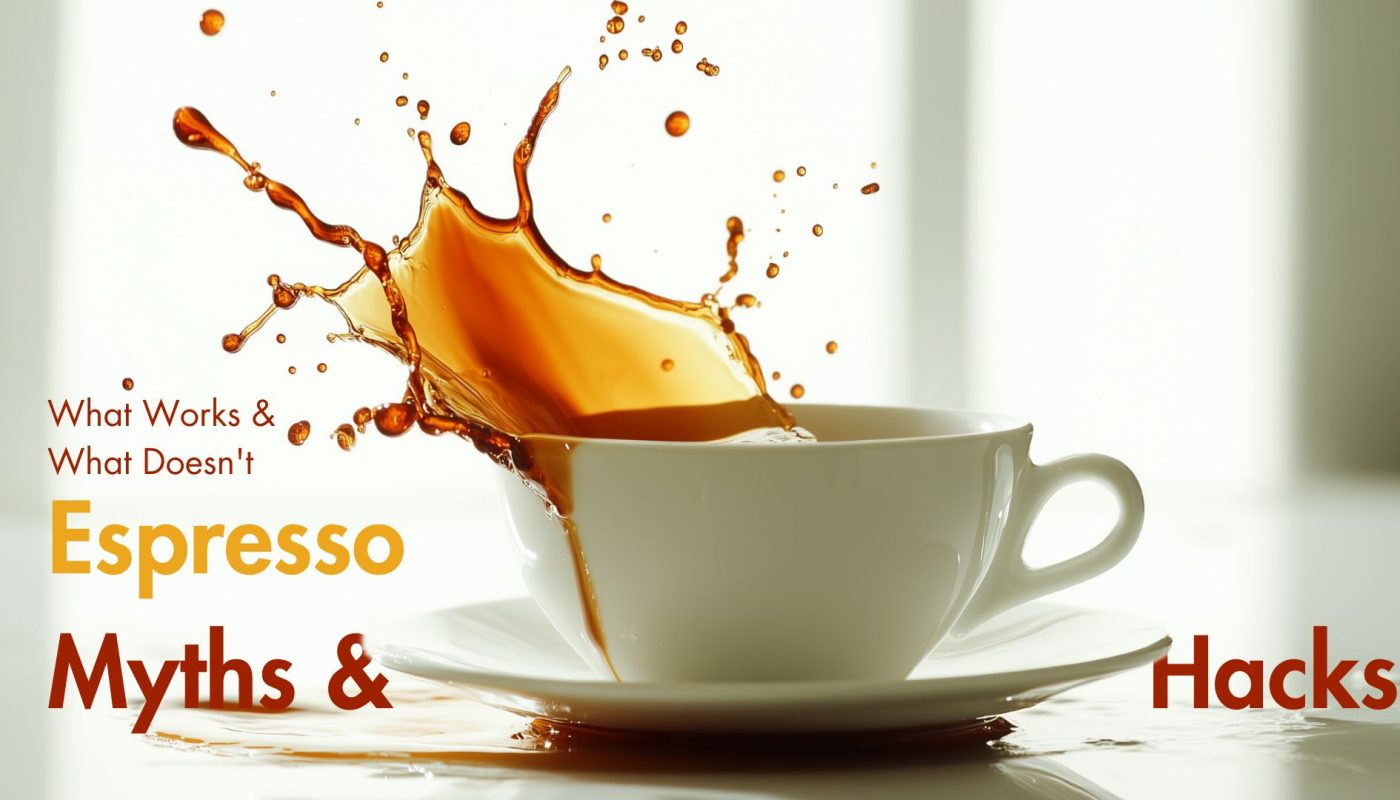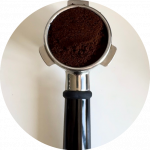Starting an espresso journey is exciting—but it can quickly get overwhelming. One article insists on premium gear, while a video warns that tamping the wrong way ruins everything. Myths about beans, caffeine, and equipment only add to the confusion. The truth is: making great espresso at home doesn’t require a massive budget or following every opinion out there. From grinder choices and tamping tips to caffeine facts and clever brewing hacks—here are some tips and tricks.
Espresso Beginner’s Cheat Sheet
Download the FREE Cheat Sheet Espresso Beginners: Packed with everything you need to kickstart your espresso journey—from beans to drinks.
What’s Coming Up
Common Myths: What’s Fact and What’s Fiction?
“A coffee is espresso depending on the beans used.”
False.
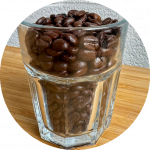
Espresso isn’t about a special kind of bean—it’s about how the coffee is brewed. Using an espresso machine, hot water is forced through finely ground coffee under pressure to create the espresso shot.
The beans? Any coffee bean can be used, and it doesn’t have to be roasted a certain way either. The difference lies in the method, not the bean. Espresso can be enjoyed on its own or as the base for drinks like lattes or cappuccinos. Curious about how espresso pairs with milk? That’s coming up in the next blog post.
“Light roasted beans have more caffeine.”
Not quite.
Caffeine begins to decompose at around 285°C—hotter than typical coffee roasting temperatures. So the roast level doesn’t drastically change caffeine content. However, dark roasts lose more water and expand more during roasting, which results in less weight per scoop compared to light roasts.
So if scooping beans rather than weighing them, light roasts may appear to contain more caffeine, but it’s all about how the coffee is measured.
What Works and What Doesn’t
Grinder Talk: Do You Really Need a High-End One?
Yes and no.
Instead of price, focus on these key features when choosing a grinder: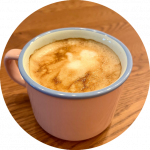
- Consistency in grind size
- The ability to make small grind size adjustments
- A wide range of grind settings for more control
An entry-level grinder can meet these needs just fine. With the right research and attention to these factors, there’s no need to overspend.
Need help getting started? 👉 Check out this grinder guide
Tamping Pressure: Is It That Important?
Not really.
Tamping pressure is less critical than tamping evenly and consistently. If the grounds are well-distributed and the tamp is level each time, that’s what truly matters. Precision and consistency are far more impactful than brute force.
Great Hacks to Know
Want to Store Your Beans Longer?
Coffee beans can stay fresh in the freezer for up to 4 months if vacuum sealed properly. Be sure to label and date the containers—after that point, beans will begin to lose flavor and aroma.
Unsure If the Basket Is Filled Correctly?
- Prepare the basket as usual and tamp the grounds
- Place a coin gently on top
- Insert the basket into the machine, then remove it (before brewing!)
No dent = not enough coffee I Slight dent = just right I Big dent = overfilled
Puck Screens: Worth It?
Yes.
A puck screen sits on top of the tamped coffee to help distribute water more evenly during extraction. This can reduce channeling and even slow extraction slightly, which is especially helpful when working with lighter roasts.
The Perfect Shot?
It’s Personal.
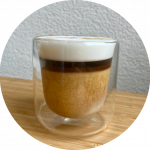
There’s a lot of talk about the “perfect” espresso shot—but the truth is, there’s no single definition.It depends on personal taste, technique, and consistency.
What matters more is developing repeatable habits, learning how small changes affect flavor, and adjusting based on individual preferences. The perfect shot isn’t a fixed destination—it’s a moving target shaped by exploration and experience.
Join the Conversation
Already pulled your first espresso? Got questions, favorite beans, or a hack that changed your coffee life? Drop a comment below and share your espresso journey. Let’s talk espresso!
Still Thirsty?
Start your espresso journey with me:
- The Portafilter Machine: A Must-Have for Espresso Fans
- Espresso Freshness 101: A Beginner’s Guide to Beans and Proper Storage
- Unlock the Full Flavor of Espresso: The Art of Grind Size and Extraction
- Pulling Espresso Shots at Home: A Step-by-Step Guide
- Why Your Espresso Tastes Off – Troubleshooting Extraction Issues
Images
– Featured Image: Generated with AI (wawa34_95 on Midjourney)
– All thumbnails: Taken by me
